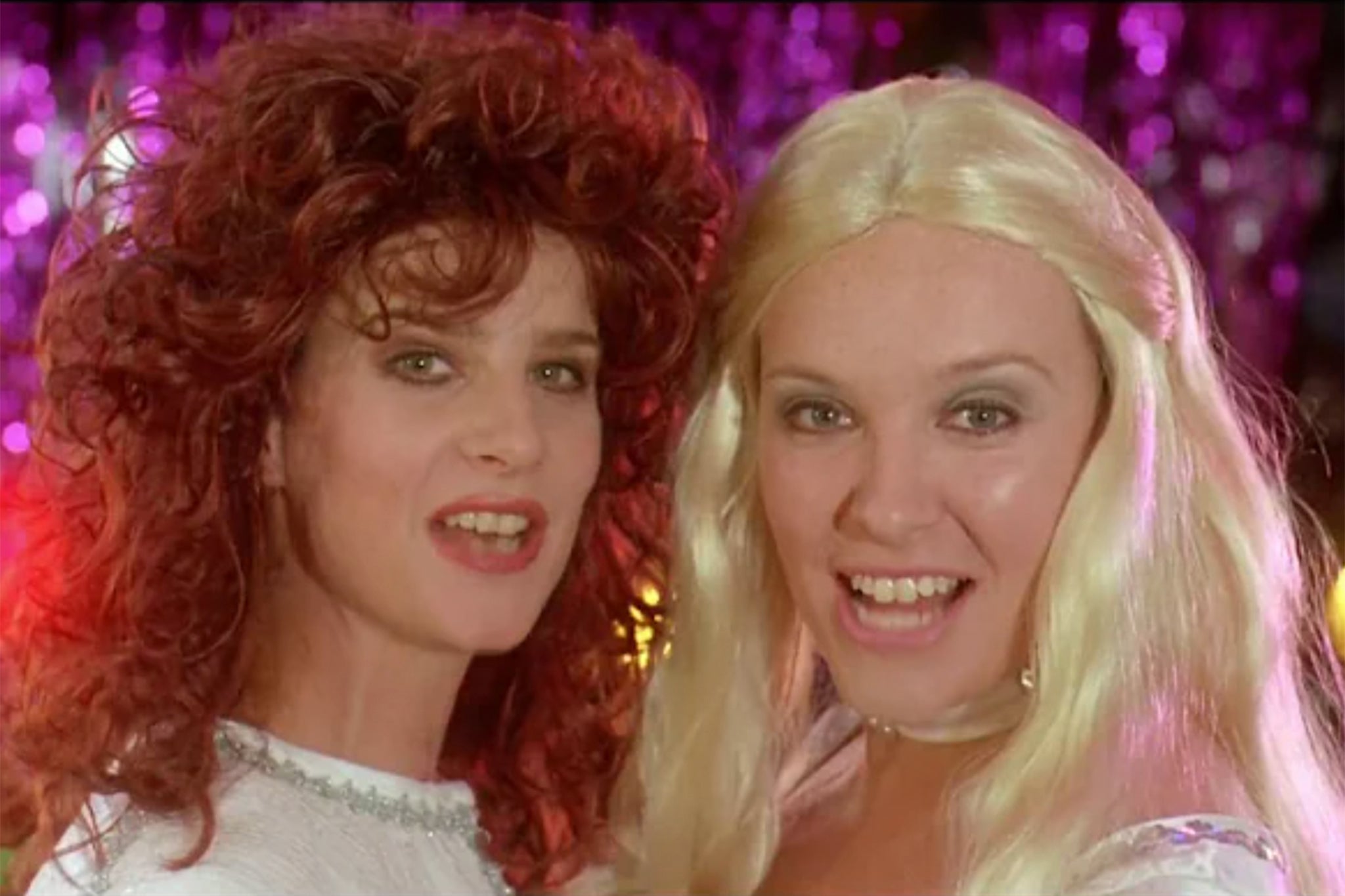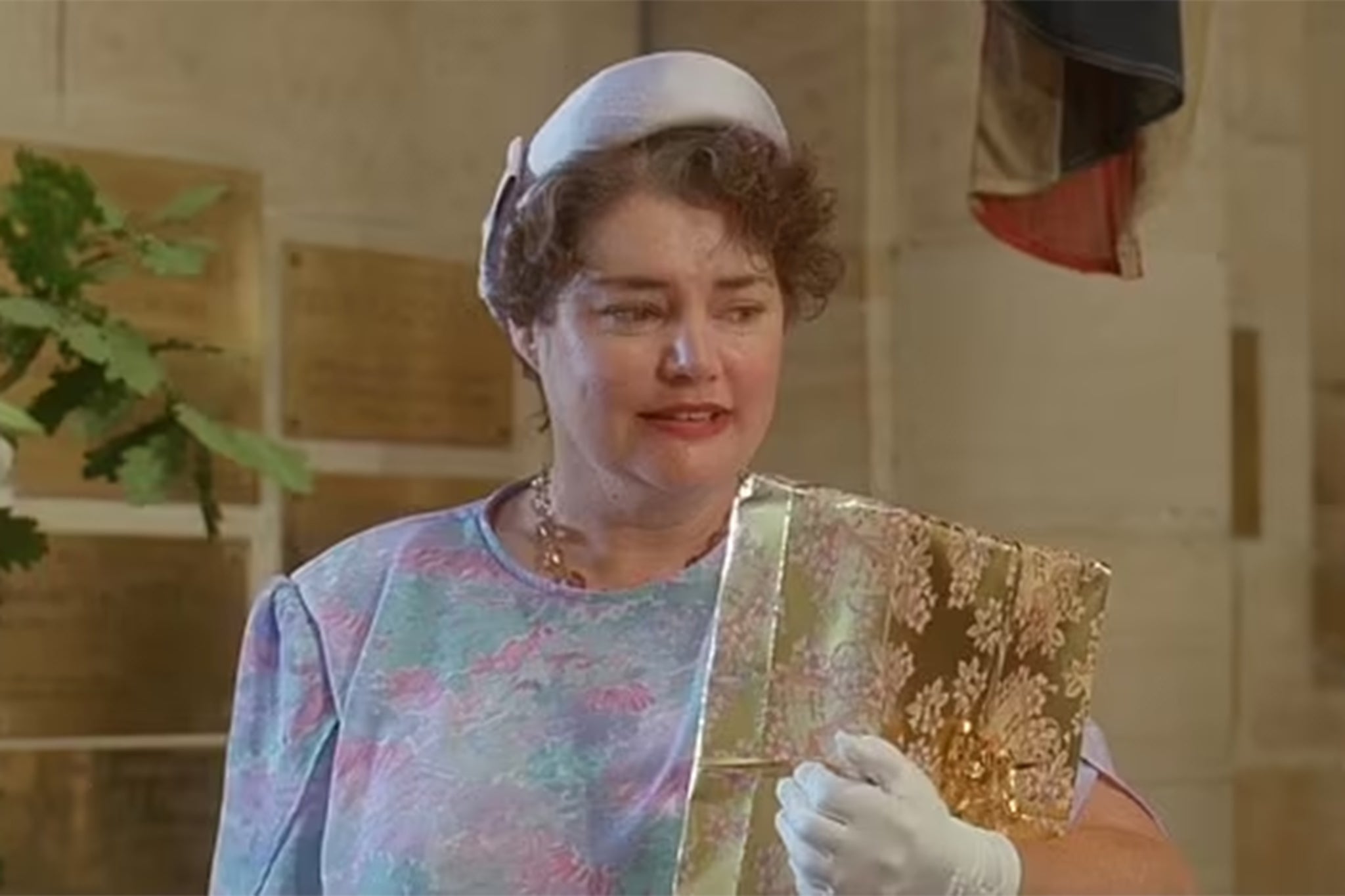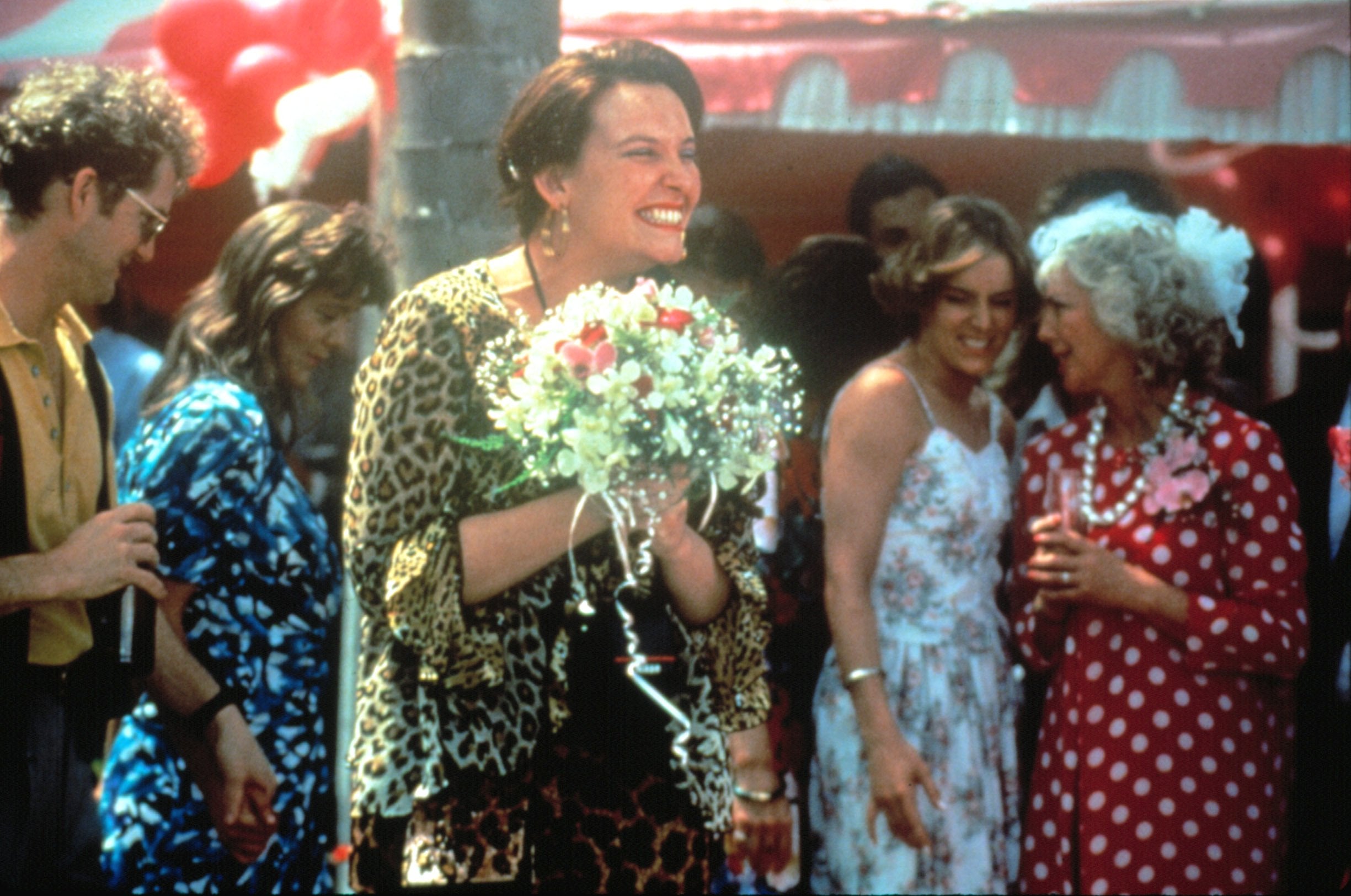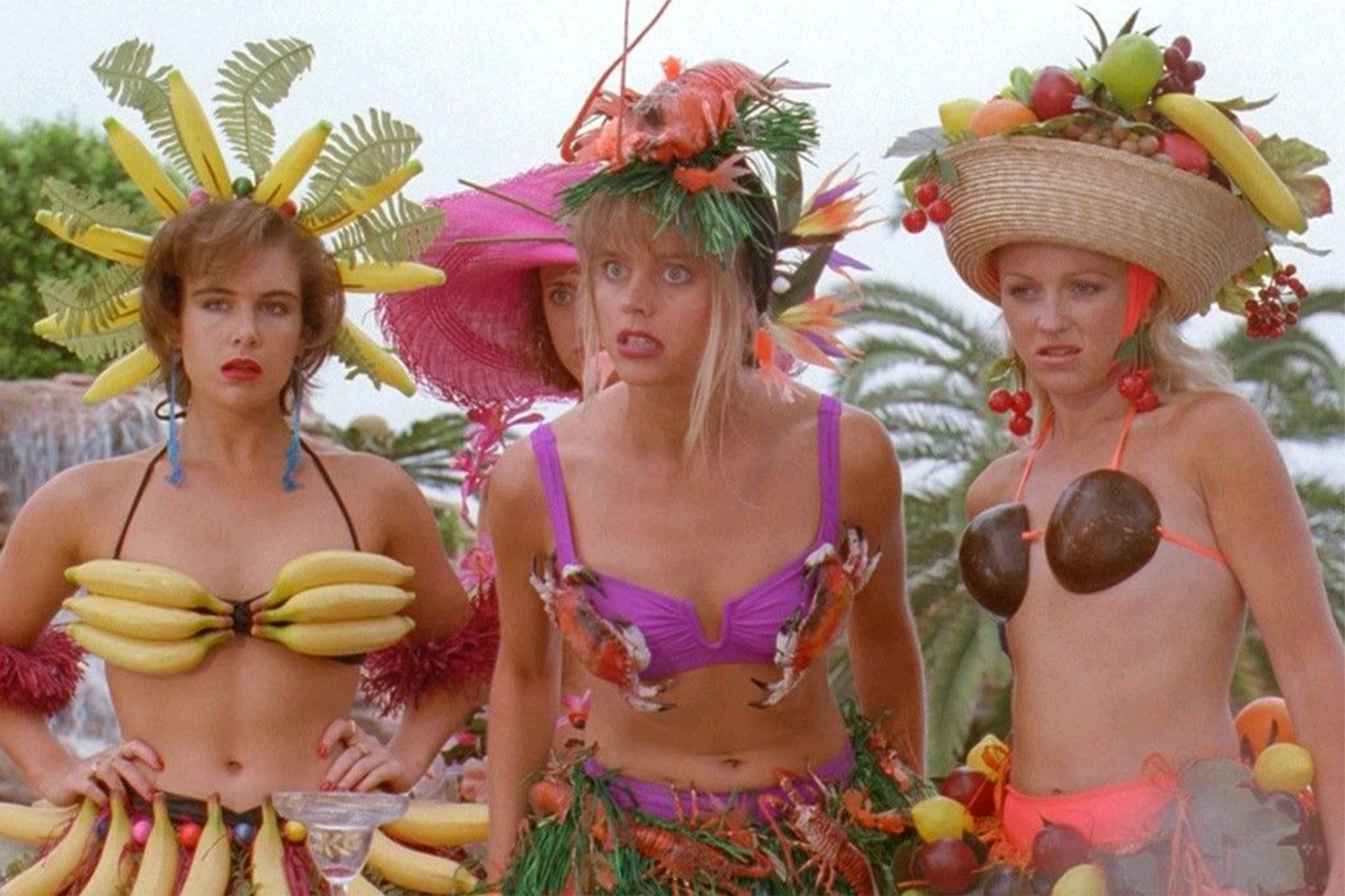‘You’re terrible, Muriel’: How we fell in love with Muriel’s Wedding and its flawed, brilliant heroine
It made a star out of Toni Collette and is one of the few films to have an Abba-approved soundtrack. As the Golden Globe-nominated cult classic turns 30, Roisin O’Connor explores how a newbie director and fresh-faced cast created cinematic gold


Your support helps us to tell the story
From reproductive rights to climate change to Big Tech, The Independent is on the ground when the story is developing. Whether it's investigating the financials of Elon Musk's pro-Trump PAC or producing our latest documentary, 'The A Word', which shines a light on the American women fighting for reproductive rights, we know how important it is to parse out the facts from the messaging.
At such a critical moment in US history, we need reporters on the ground. Your donation allows us to keep sending journalists to speak to both sides of the story.
The Independent is trusted by Americans across the entire political spectrum. And unlike many other quality news outlets, we choose not to lock Americans out of our reporting and analysis with paywalls. We believe quality journalism should be available to everyone, paid for by those who can afford it.
Your support makes all the difference.The bouquet flies across the screen with the sound of an incoming missile. Hands reach upwards, grasping as women lunge towards it, screaming. Just one is victorious: Muriel Heslop, Porpoise Spit resident and social outcast. No sooner, however, has she caught the bunch of flowers than they are ripped from her hands: “No one’s ever gonna marry you, you’ve never even had a boyfriend!”
On paper, Muriel’s Wedding sounds like a by-the-numbers romcom – a sad woman runs away from her small Australian town to the big city in the hope of reinventing herself and finding a husband – yet there’s so much more to it than that. Even now, on its 30th birthday, PJ Hogan’s film remains a radical portrait of patriarchy, class, ambition, disability, and the complexities of female friendships. By turns sweet and sardonic, with a melancholic undertow, it’s driven by an indelibly poignant performance from then newcomer Toni Collette.
Her co-star Dan Wyllie called it the “saddest funny film ever” – and truly it is. Muriel (Collette) is trapped in Porpoise Spit with her bullying father, meek mother and layabout siblings. All she wants in life is to be a bride. Steadfast in her mission to find a groom, she embezzles her family and flees to Sydney with her best friend and fellow outcast, Rhonda (Rachel Griffiths). Once there, she undergoes a makeover, changes her name to “Mariel” – and waits for her life to change.
While Hogan has said that finding Collette was a “fluke”, the actor herself recalled her determination in landing the part. “All I know is that I knew I was going to do it,” she told Variety in 2020. “It’s ballsy to say considering my lack of experience, but I just knew.” She compensated for her greenness with sheer resolve: in just seven weeks, Colette put on 40lbs for the part of Muriel – a character she imbued with a vacant, moony air; a woman wrapped up in a fantasy world of taffeta and silk.
Collette was “young and enthusiastic”, says Jeanie Drynan, who plays Muriel’s mother Betty. “She was perfect.” While the film largely follows Muriel’s journey, Betty’s is similarly affecting. Her husband is a bully of all the worst attributes – corrupt, misogynistic, racist, narcissistic. He is also having an affair with local entrepreneur Deidre Chambers. Betty is alternately ignored and belittled by her family – after a misunderstanding at a supermarket where she is arrested for shoplifting, she finally cracks, and tearfully tells her husband Bill she needs help. He turns on the radio to drown her out.
Drynan, who is 73 and lives in Los Angeles, tells me that she had originally been approached for the role of Deidre but had “piled on an enormous amount of weight” and was by then in her late forties, so felt unsuited for the part of mistress. “I’m the mum,” she had told Hogan.

She thought the audition was a bust, but three weeks later received a call in the middle of the night telling her to pack her bags. Her first scene – the supermarket shoplifting incident – was shot hours after she stepped off the 15-hour flight from LA to Sydney. “My feet needed to be swollen and dirty for the scene, and at this point I hadn’t had a shower or a cup of tea,” she says. “I told them, ‘You don’t need to touch my feet, just look at them!’”
Of all her work in the past 60 years, Drynan says it is Muriel’s Wedding that people most frequently approach her for. “It’s about the human condition,” she says of the film’s legacy. “There are always young girls struggling with their body image. There are always women who have been diminished and are struggling with life. We all suffer in some way.”
Muriel’s suffering is considerably eased when she bumps into her old schoolmate, the hilarious, blunt and sexually liberated Rhonda, on an island holiday. In their first meeting, Rhonda stands up to Muriel’s bullies, giving rise to the iconic line: “I’m not alone. I’m with Muriel.”
Collette is undoubtedly the film’s emotional lynchpin, but around her revolves a superb carousel of supporting characters. Griffiths’s spirited Rhonda is like a starting gun, forcing Muriel out of her complacency and driving her to make something happen for herself. But she also calls Muriel out on her delusions. “You’re right, you are a new person, and you stink,” she tells her, outside the church at Muriel’s wedding. “Mariel VanArkle stinks! And she’s not half the person Muriel Heslop was.”

“The wonderful thing about [Rhonda] was that her vitality was self-defining,” Griffiths told Variety in 2020. At the heart of the film, she said, “is the idea that when you are fundamentally rejected by your family… then the families you create beyond that are your lifeboats. So, Muriel helps Rhonda. They become each other’s family.”
Their odd-couple reunion is cemented with a bonkers full-tilt performance of Abba’s “Waterloo” that secures the duo first prize at a talent show. Back in Porpoise Spit, the Swedish superstars had been the only ones capable of lifting Muriel’s spirits. “When I lived in Porpoise Spit, I used to sit in my room for hours and listen to Abba songs,” Muriel tells Rhonda towards the film’s end. “But since I’ve met you and moved to Sydney, I haven’t listened to one Abba song. That’s because my life is as good as an Abba song. It’s as good as ‘Dancing Queen’.”
Muriel’s Wedding happens to be one of just a handful of films that Abba granted permission to use their music. “It came out of nowhere, for Abba, but I think they must have read the script and really liked it – because they’re known for saying no to everything,” Abba expert and music journalist Jan Gradvall says. Similarly, Drynan says Hogan was “very lucky” to secure the music rights: “A good 20 per cent of the film is the music, in a way.” Indeed, songs such as “Dancing Queen”, “Waterloo” and “Fernando” feel like characters themselves, cheering Muriel on when no one else would.
There was plenty of cheering from critics, too. Upon its release, the late, great film critic Roger Ebert noted that Muriel’s Wedding walked the “careful line between satire and misery”. It is merciless, he wrote, in “its portrait of provincial society, and yet has a huge affection for its misfit survivors”. The film arrived at an opportune time for Australian cinema – on the crest of a wave shared by Strictly Ballroom and The Adventures of Priscilla, Queen of the Desert. Together, they signalled a renaissance in Australian filmmaking that propelled homegrown talent, like Colette, onto the international stage. The actor earned a Golden Globe nomination for her performance, while Hogan went on to direct the seminal 1997 romcom My Best Friend’s Wedding.
Muriel’s Wedding is often billed as a romcom, too, but the label sort of does it a disservice. Granted, it is an absolute hoot thanks to the witty dialogue and impeccable comic timing. (“You’ve got no dignity, Muriel,” Cheryl (Roz Hammond) sneers, while wearing a grass skirt, fake flowers, and enormous pink hat.) But there’s a darkness at its heart, one that’s relatable for everyone. Speaking to Variety in 2020, Collette said she believes the film strikes a chord because “most people feel like an awkward outsider at some point in their lives”.

“It’s a part of being human,” she continued. “Insecurity among other hurdles exists to be overcome. I [have realised] audiences were generally comforted by Muriel. It still makes them feel less alone and OK about feeling vulnerable and imperfect in a society that demands so much of us.”
It is also part of the reason why the film has an adoring LGBT+ fanbase. Griffiths told The Conversation that she spoke with a gay man in his twenties who explained that he saw the film as a parable for Aids – at the time still a major health crisis. “We’re the outcasts in our family. Our fathers belittle us for being feminine,” he told her. “We escape to the big smoke with the promise of becoming ourselves and following our own journey. We replace our families who have rejected us with our chosen family who celebrate us.”
Rhonda and Muriel are one another’s chosen family; any romance in the story derives from their friendship. While Muriel does eventually get married – to a handsome South African swimmer in need of a green card – she ends up leaving him to find Rhonda, now in a wheelchair after spine cancer surgery.
It’s then that Muriel gets her fairytale ending, as she and Rhonda wave goodbye to Porpoise Spit for good, driving off into the sunset to the carefree, blissful sound of “Dancing Queen”.
“There’s something so brave about this girl, who really has no experience, just escaping an abusive past and kind of reshaping her whole family dynamic and history,” Collette said. “She’s an underdog, but also she just goes for it.” There’s a beautiful irony in how, for all Muriel’s wishing that she could be like everyone else, it’s us who end up wishing we could be like her.
Join our commenting forum
Join thought-provoking conversations, follow other Independent readers and see their replies
Comments